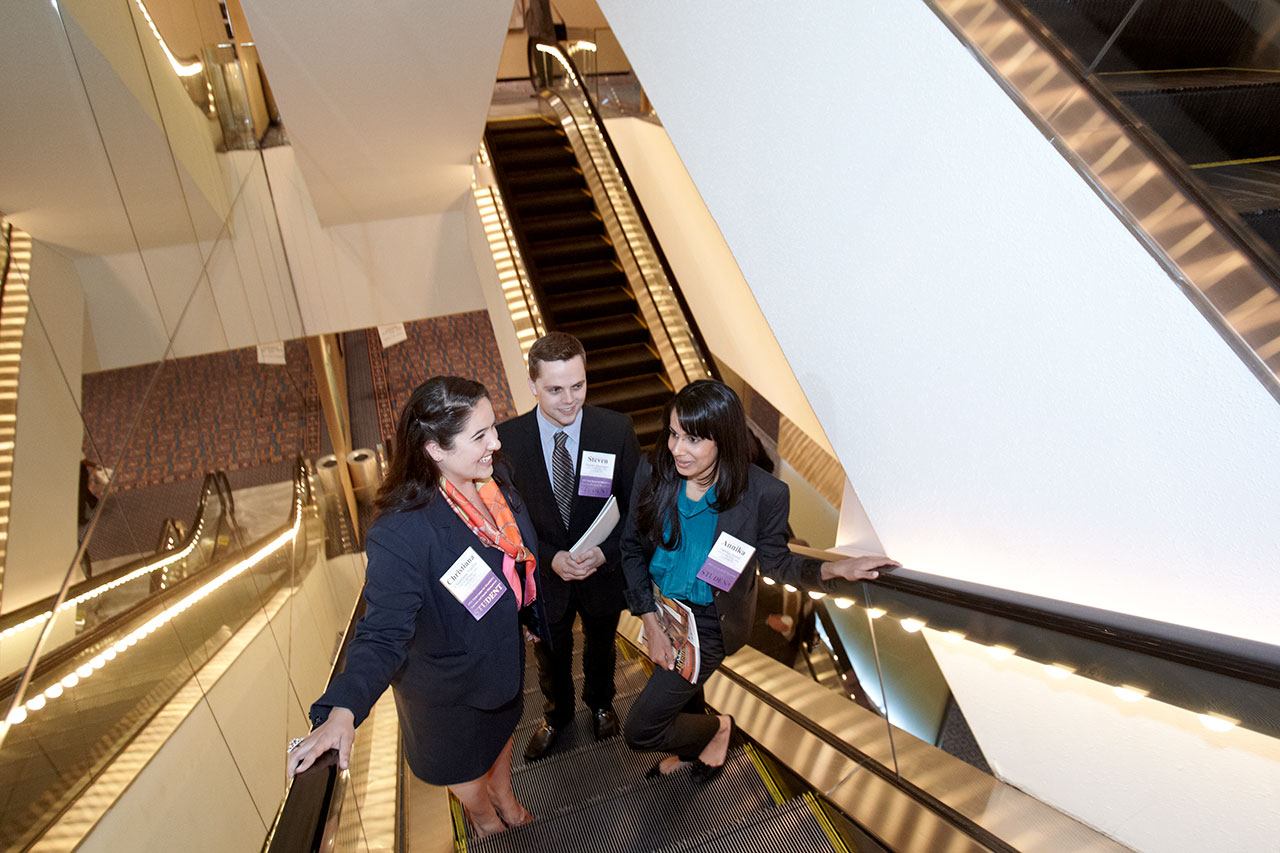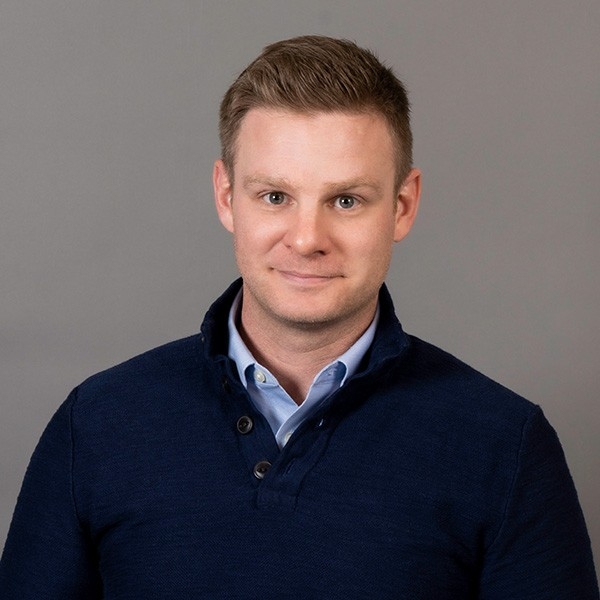New York City hosted more than 13 million international visitors in 2018, making it the only US city to crack the top 10 of Mastercard’s annual Global Destination Cities Index—and an ideal place to pursue a hospitality degree.
“I’d been accepted to a number of schools, but the chance to study in New York City made my decision easy,” shares Tristan Jordan, a senior Hotel and Tourism Management major at NYU’s School of Professional Studies Jonathan M. Tisch Center of Hospitality. “I couldn’t pass up the industry connections, internship opportunities, and professors who are industry professionals.”

“If you utilize all the opportunities you have at hand in New York City, there’s no limit to what you can experience.” —Sophy Martorell
Nearby Network
Tisch Center students connect with top-level hospitality professionals; professors regularly invite these experts to class or take students on site visits. “I’ve taken students to Google’s local offices to talk with its travel product director,” says Professor Recep Karaburun. “We’ve visited the St. Regis and invited its general manager to class to share his experience. The president of NYC & Company and the cofounders of the start-up airline app Hopper have visited class, too. New York City is our lab, and we have access to all its resources.”
The Tisch Center also hosts the annual NYU International Hospitality Industry Investment Conference, one of the largest hospitality industry events in the world, where students can meet the heads of major hotel brands, investment firms, and destination management companies.
Outstanding Internships

With 217 companies headquartered in New York City—including industry heavyweights like JetBlue, Concord Hospitality Enterprises Company, and the Loews Corporation—and countless others with locations here, the opportunities to intern with industry leaders are practically endless.
“Marriott, which has every one of its brands here, is a great example,” says Sophy Martorell, a Hotel and Tourism Management major with a concentration in hotel development. Sophy’s first internship with Starwood Hotels and Resorts Worldwide came in the spring of her first year at NYU. She went on to intern with W Hotels, The St. Regis, and Sheraton (all Marriott brands) as well as The Plaza, Iron Bridge Consulting, and LW Hospitality Advisors. “If you utilize all the opportunities you have at hand in New York City, there’s no limit to what you can experience,” she says.
Real-Life Experience, Shared by Real-World Faculty

Tisch Center faculty are industry professionals eager to share their decades of experience. “Every professor I’ve had works full time and teaches, which is amazing, because their real-time industry knowledge and connections become an invaluable resource for students,” says Sophy. Tisch Center professors are founders, CEOs, and presidents of some of the world’s preeminent travel and hospitality companies—including Hotwire, TPG Hotels & Resorts, and Lodging Advisors. “Studying at NYU has forced me out of my comfort zone, taught me to adapt, and provided me with countless opportunities,” says Tristan. “I definitely feel that I’m a step ahead of people who study in other hospitality programs.”
On Hospitality’s Cutting Edge

“Many hospitality schools continue to ignore technology,” says Max Starkov, a Tisch Center professor and the founder and director of the hotel digital marketing and technology firm HEBS Digital, now NextGuest Digital. In the hospitality program at NYU, he says, “Everything we do is powered by technology.” In fact, in his Emerging Issues in Hospitality & Tourism course, Professor Starkov delves deeply into the convergence of tourism and tech. As a result of this interdisciplinary focus, students graduate with skills that are extremely attractive to employers—including Professor Starkov. NextGuest employs a number of Tisch Center alumni who, in just a few short years, have advanced to senior vice president, director, and senior manager positions. “Simply, if you want to be in hospitality, you must understand technology from an industry perspective. NYU puts students in the position to do that,” he says.
And Professor Starkov is not alone in his emphasis on using new cutting-edge methods. Nearly every hotel and tourism management course examines the increasing role of technology in hospitality—a reflection of what Professor Karaburun calls the drive to prepare students for the future. “Students need to know where the world is going,” he asserts. “That way, when they graduate, they’ll be comfortable planning for what will happen five years from now.”
Five Tisch Center Concentrations
Industry-specific concentrations include:
Event management: Focuses on planning, designing, producing, and marketing an array of conferences and special events
Hotel development: Teaches every aspect of a hotel’s creation—from market analysis through operations management
Marketing and revenue management: Explores the ins and outs of promoting a brand and strategically managing the revenue it generates
Organizations and operations: Demonstrates how to develop and implement successful operational structures for casinos, hotels, private clubs, and resorts
Tourism development: Shows how to maximize tourism prospects for exclusive destinations, sporting events, and special interest locations



